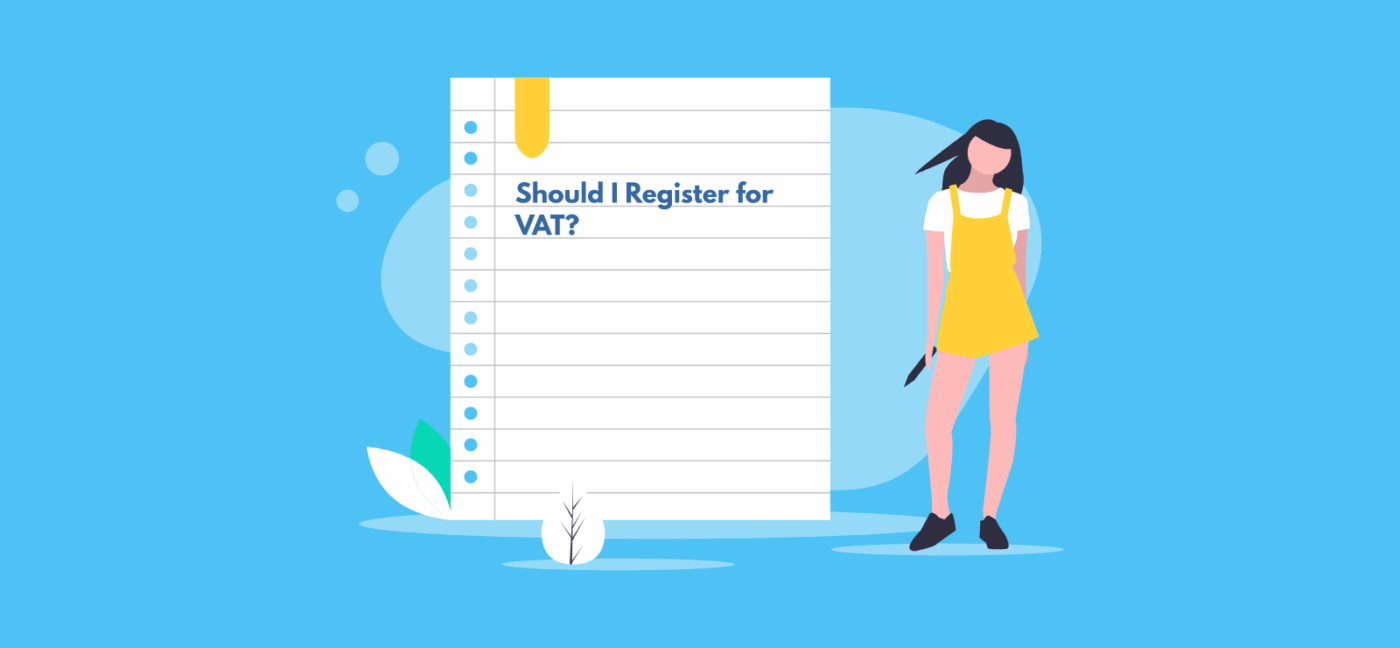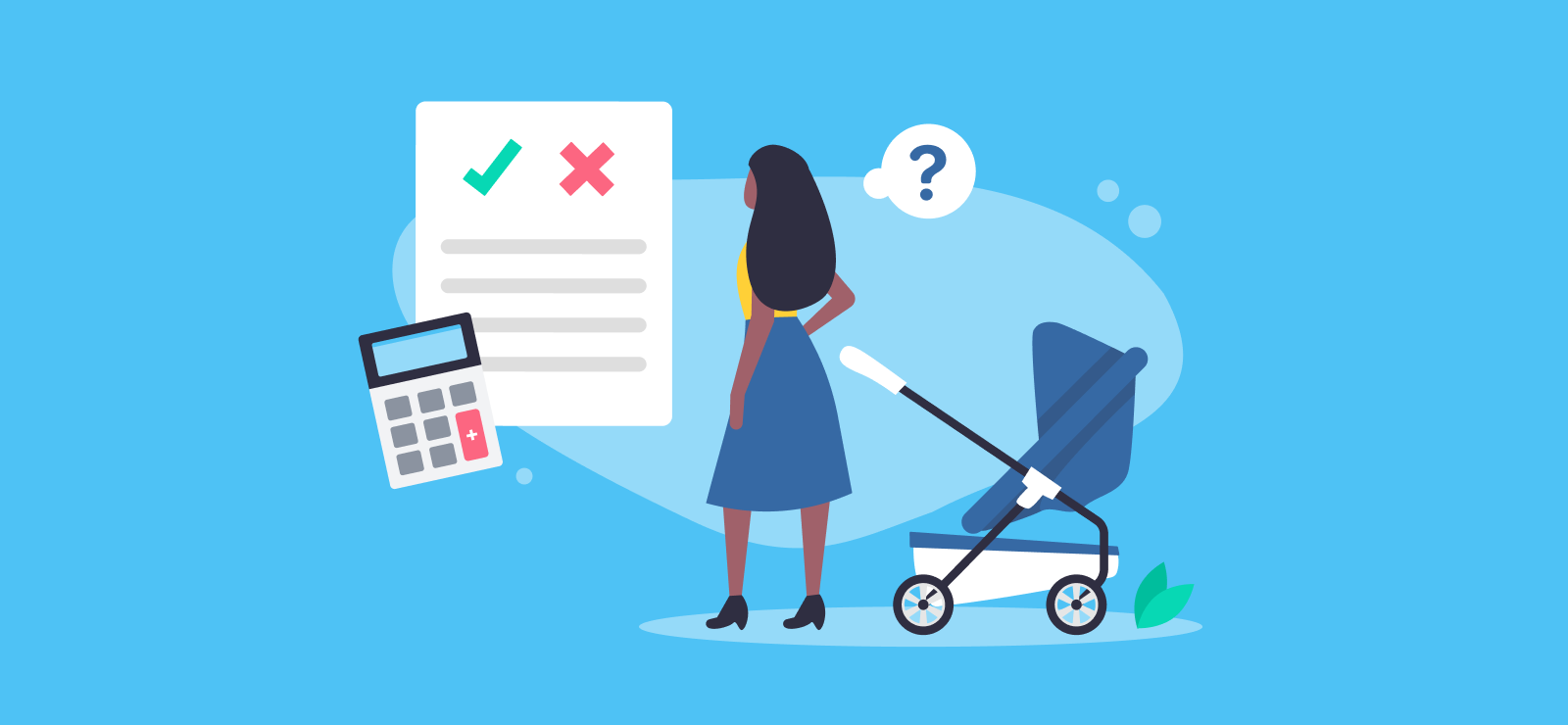

Should I Make a Voluntary Registration for VAT?
Businesses selling taxable goods and services must register for VAT when their turnover reaches the VAT threshold, but registering voluntarily before reaching the threshold can have benefits for some businesses. In this article we’ll look at compulsory VAT registration versus tax efficient voluntary registration, and what the rules and requirements are.
When is VAT registration compulsory?
Putting aside voluntary registration for now, it’s essential that you register for VAT if your total VAT taxable turnover:
- Reaches the registration threshold (currently £90,000) withing a rolling 12-month period
- You expect to reach the limit within the next 30 days
How do I check my VAT taxable turnover?
Your VAT taxable turnover is the total amount of sales made in the last 12 months which would have been subject to VAT (so you would have charged VAT on the sale if you had been registered at the time). This is where good bookkeeping steps in to save the day, so you know where you’re up to! A few important points to remember:
- For the purposes of VAT registration, 12 months doesn’t mean a fixed calendar year or tax year. It’s a rolling 12-month period, and you’re always looking back at the previous 12 months leading up to this point in time.
- VAT taxable means any product or service which is subject to VAT. It also includes things which are zero rated for VAT (which is different to being VAT exempt!).
- Turnover is the total amount of sales before any expenses or other deductions are made.
Who can register for VAT?
You can register for VAT if you are in business as a:
- Sole trader
- Partnership
- Limited Liability Partnership
- Club
- Association
- Limited company
One of the (false!) myths of VAT is that only limited companies can register. This isn’t true, and the basis for VAT registration is actually the turnover of a business (the amount it makes from sales) rather than its legal structure. So, whatever type of business you run, you can register for VAT if you want or need to.
Will my business benefit from voluntary VAT registration?
Like any business decision, this depends on your own unique circumstances. Some businesses find making a voluntary registration is worthwhile because it helps them to be more tax efficient.
This is because VAT is charged by the seller, so you’ll pay VAT even if you’re not registered for it yourself. If you buy something taxable from a VAT-registered seller, then they’re going to charge you VAT on the purchase.
- Input tax: The VAT which a business pays on purchases whether or not it’s VAT registered
- Output tax: The VAT which a business must charge on taxable sales but only if it registers for VAT
If a business is VAT registered it can also claim back the VAT it pays on purchases – as long as the amount it pays out is higher than the amount it collects on sales in the same period of time.
Will registering for VAT be tax efficient?
The question of voluntary VAT registration being tax efficient depends on the things your business buys and sells. Not everything is subject to VAT, and some items are charged at different rates. For instance, children’s shoes are subject to VAT but at a rate of 0%, whereas parking is exempt.
So, if your business buys lots of things subject to VAT, but the things it supplies are not, you’ll regularly pay more VAT on purchases than you charge on sales. This means making a voluntary registration for VAT would allow you to claim back the difference between the two on a regular basis, which will help you be more tax efficient!
Your business pays more VAT on purchases than it collects from sales
|
Your business collects more VAT from sales than it pays on purchases
|
Think about it from the other side though. If the nature of your sales changes so you end up charging VAT more regularly, making a voluntary registration for VAT might not be so useful. In that situation, it would likely be better for you to wait until you have to register.
Making sure you register in plenty of time
There’s a lot to remember when you run a business, and it can be difficult to keep track of everything, especially when you’re busy. If you realistically expect to reach the compulsory threshold, registering for VAT voluntarily ensures you don’t miss your deadline. Nobody wants to receive penalties!
Attracting customers
Not being VAT registered does make it obvious turnover is below the registration threshold. For some customers VAT registration is a sign of prosperity, and therefore stability. As a smaller business, voluntary VAT registration can boost your profile when competing against larger contenders.
You might also find some VAT-registered customers prefer to shop with other VAT registered businesses, so think about who your customers are, and what your registration might mean to them.
Reclaiming VAT on purchases before registration
Once you register for VAT, you may be able to reclaim the VAT on purchases you made before registering.
- You can reclaim VAT up to 4 years after you purchase goods
- For services, you can reclaim VAT up to 6 months after the purchase
If you know you need to register for VAT in the near future, but don’t want the window of opportunity to close on reclaiming VAT for older purchases, you might feel that making a voluntary registration is useful.
What are the disadvantages of voluntary VAT registration?
Voluntary registration for VAT may be a good idea, but it can also have disadvantages.
- Once you register, you’ll need to either add VAT to your prices, or include it in the current price (eating into the amount of profit you make. Either way, VAT registration could have an impact on your pricing.
- Adding VAT to your prices might discourage customers who aren’t VAT registered. They won’t be able to reclaim the VAT on the purchase, so might seek out a competitor who doesn’t charge it.
- VAT is incredibly complex! There are different VAT schemes available which aim to simplify the process, but you might still need help.
- HMRC don’t distinguish between compulsory and voluntary registration. Once you register for VAT, you must meet all of the requirements, including record keeping, submitting a VAT return, and paying your bill.
- Compliance is essential, so you might find the extra work isn’t worth it. That said, bookkeeping software (like our very own Pandle!) can considerably ease the burden.
To talk to one of the team about our online accounting services (including VAT), call us on 020 3355 4047, and get an instant online quote.
Want to learn more?
Subscribe to our newsletter to get accounting tips like this right to your inbox

Read more posts...

The Accountancy Partnership – Our Positive Reviews
16th February 2026We’re proud of our customers’ reviews here at The Accountancy Partnership The reviews we receive from our customers show how hard we…
Read More
Maternity Pay for Self-Employed People
15th February 2026As a self-employed person you might be eligible to get Maternity Allowance payments for up to 39 weeks. It’s different to Statutory…
Read More
National Insurance for the Self-Employed
14th February 2026If you work for your own self-employed business, then you may need to pay National Insurance on the profits that you earn….
Read MoreConfirm Transactions
The number of monthly transactions you have entered based on your turnover seem high. A transaction is one bookkeeping entry such as a sale, purchase, payment or receipt. Are you sure this is correct?
Please contact our sales team if you’re unsure
VAT Returns
It is unlikely you will need this service, unless you are voluntarily registered for VAT.
Are you sure this is correct?
Call us on 020 3355 4047 if you’re not sure.
MTD IT Quarterly Updates
Your final, end of year MTD Income Tax submission is included in your fee, without this add-on service.
We would recommend you submit the quarterly updates yourself using Pandle or alternative bookkeeping software.
However, if you would prefer us to submit these quarterly updates for you, there is an additional fee of £35.00 per month.
Call us on 020 3355 4047 if you’re not sure.
Bookkeeping
You will receive our bookkeeping software Pandle for free, as part of your package.
You can use this to complete your own bookkeeping, or we can provide a quote to complete your bookkeeping for you.
Please select and option below:
Call us on 020 3355 4047 if you’re not sure.

